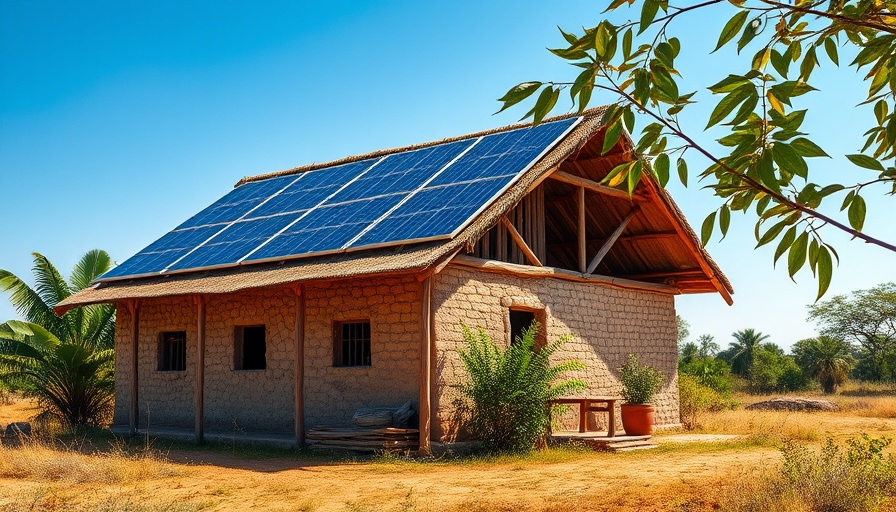
Understanding the Power Shift in Sub-Saharan Africa
In many rural regions across Sub-Saharan Africa, the challenge of electricity access remains a daunting task. The lack of infrastructure ensures that millions live in darkness. However, as we explore in the stories of individuals like Ephraim Louis from Malawi, the advent of off-grid solar home systems, primarily supplied by Chinese manufacturers, is creating a transformative change. These systems not only illuminate homes but also catalyze local economies, challenging the notion of energy dependency in these underserved areas.
Bridging the Energy Gap with Innovative Solutions
The rise of low-cost off-grid solar solutions has turned the tide for many households. Over 70% of sales for pico-solar products are emerging from Sub-Saharan Africa, where Chinese innovators successfully deliver power in a practical and affordable manner. With systems available for as low as a few hundred dollars, families can enjoy a reliable source of energy and boost their productivity. Entrepreneurs are using this newfound power to establish small businesses, reinforcing the notion that innovation is the catalyst for economic development.
The Role of Partnerships and Digital Solutions
Government initiatives, such as Malawi's Rural Electrification Programme, highlight the importance of collaboration among various sectors. The synergy between NGOs, government bodies, and private enterprises underpins successful implementation and expansion. Meanwhile, the integration of digital payment solutions has made ownership of these solar systems more feasible. By eliminating traditional barriers, such as upfront costs, broader access to renewable energy becomes a reality.
The Challenges Still Ahead
Despite the evident benefits, challenges loom. The quality of solar products varies greatly, leading to concerns about sustainability and waste management. Approximately every two to three years, low-quality panels require replacement, contributing to an increasing pile of electronic waste in environments already strained by economic challenges. As governments in the region work towards establishing robust regulatory frameworks, discussions about quality standards, recycling strategies, and long-term sustainability practices become essential.
Economic Impact of Renewable Energy Solutions
The economic upliftment brought by these home solar systems is crucial. Indeed, families, now free from the burdens of expensive alternatives, can invest in education, health, and improved living conditions, leading to a healthier society overall. Addressing the economic divide through energy leads to more empowerment as households leverage this source for various income-generating activities. The indirect benefits ripple through the communities, fostering local economies.
Future Predictions: The Path Toward Energy Independence
As the landscape of energy access evolves, the prospects for off-grid solar systems remain promising. Industry experts project that the demand for renewable energy solutions in these regions will only grow. Technologies such as smart grids and energy storage may soon play a crucial role in enhancing energy efficiency and reliability. In this transformative era, Sub-Saharan Africa has the potential to become a model for energy solutions worldwide, attracting foreign investment and encouraging green technology development.
Conclusion: Embracing Change for a Brighter Future
As we stand on the brink of a renewable energy revolution in Sub-Saharan Africa, it becomes imperative to advocate for sustainable practices and investment in quality technologies. While off-grid solar systems are proving to be a lifeline for many, the ultimate goal remains to move towards a stable and efficient energy infrastructure. Companies, governments, and consumers alike can play transformative roles in ensuring that the future of energy in the region is not just bright but sustainable.
 Add Row
Add Row  Add
Add 




Write A Comment